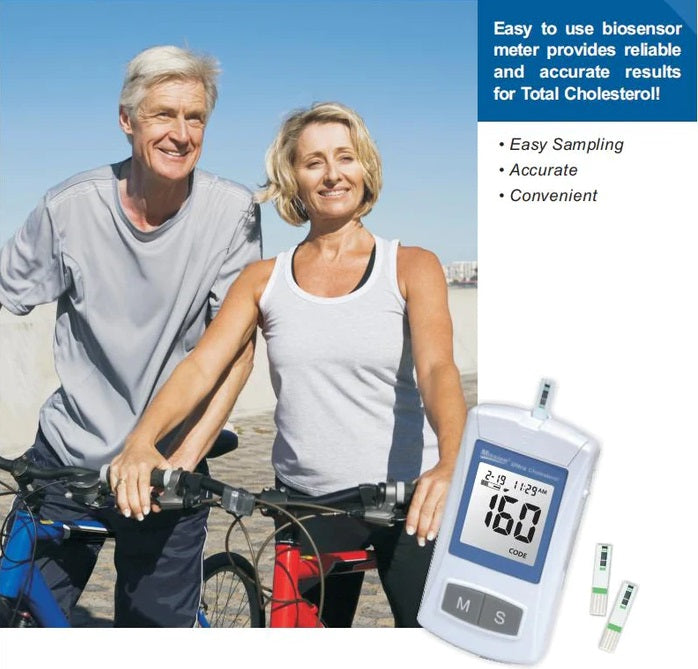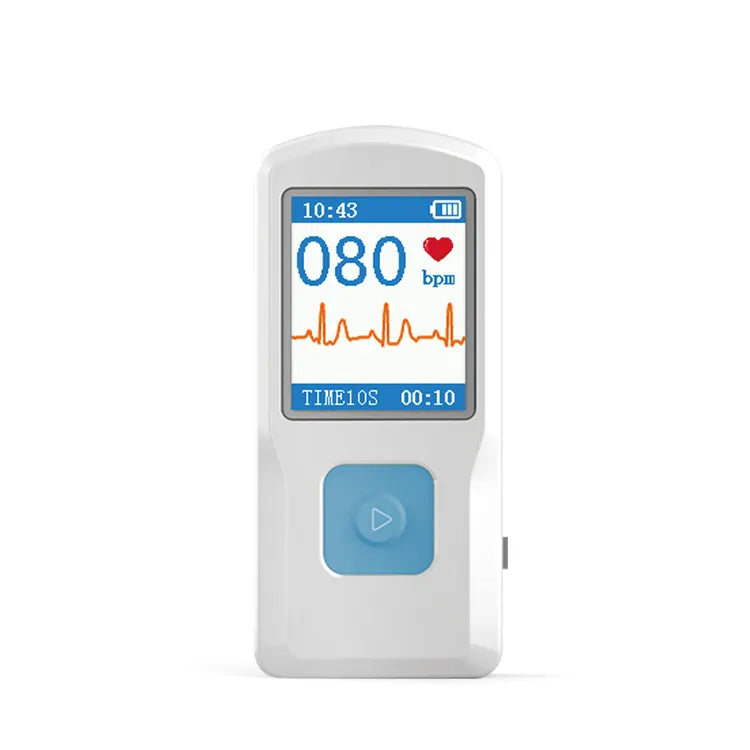The Promising of Cholesterol Testing

Increasing Prevalence of Lifestyle Diseases
The burgeoning incidence of lifestyle-related ailments stands as a pivotal catalyst propelling the expansion of the cholesterol-testing products market. Conditions like obesity, diabetes, and hypertension, acknowledged precursors to elevated cholesterol levels and cardiovascular disorders, significantly contribute to this trend.
As an example, data from the World Health Organization reveals that noncommunicable diseases, encompassing cardiovascular conditions, diabetes, and cancer, constitute approximately 71% of the global mortality. These maladies are intricately linked to detrimental lifestyle behaviors such as inadequate physical activity, poor dietary choices, and tobacco consumption, which emerge as pivotal risk determinants for such afflictions. This has led to a rise in demand for cholesterol testing products, as early detection and management of high cholesterol levels are critical in preventing the onset of cardiovascular diseases.
With the growing awareness of the importance of cholesterol monitoring and management and a greater understanding of the link between high cholesterol levels and cardiovascular diseases, there is a growing emphasis on the importance of regular cholesterol screening and management. This has resulted in increased demand for cholesterol testing products, both in clinical settings and for at-home monitoring.
During the early stages of the pandemic, the overwhelmed healthcare systems and focus on COVID-19 patients led to a decrease in routine cholesterol testing. However, as healthcare systems adapted to the situation, the demand for cholesterol testing products started to recover.Furthermore, the pandemic has prompted a rise in telemedicine and remote monitoring, presenting novel avenues for cholesterol testing products. This shift has enabled patients to access cholesterol testing remotely and receive virtual consultations with healthcare providers, thereby enhancing access to care while mitigating the risk of COVID-19 exposure.
Overall, while the initial impact of the pandemic may have disrupted cholesterol testing, the subsequent adaptations and increased emphasis on telemedicine have opened up new prospects for promoting and facilitating cholesterol testing, making it more accessible and convenient for patients.
Wide Range of Applications With Cholesterol Testing
At-home use: Cholesterol testing machines are also available for at-home use. Many individuals with a family history of high cholesterol or those who are actively managing their heart health use these devices to regularly monitor their cholesterol levels. These at-home testing kits provide convenience and allow people to track changes over time.
In medical facilities: Cholesterol testing machines are commonly used in hospitals, clinics, and healthcare centers as part of routine check-ups, diagnostic procedures, and monitoring of patients with cardiovascular conditions. Healthcare professionals rely on these machines to assess cholesterol levels and make informed decisions about patient care.
- Hospitals
- Clinic
- Pharmacy
- Medical device distributors (offline and online shop)
- Brands without factories that require OEM production
- Distributor
Resource Constraints in Certain Clinics and Hospitals
Some healthcare facilities, particularly those in rural or underserved areas, might have limited resources and medical equipment. Cholesterol testing requires specific equipment and supplies, and if a facility doesn't have access to them, they may not be able to offer the test.Certain hospitals or clinics might specialize in specific areas of medicine and might not offer a wide range of diagnostic tests. For example, a small specialized clinic might focus solely on a particular type of treatment or procedure and not offer cholesterol testing.
Blood lipid testing is an important aspect of assessing cardiovascular health and risk factors, as it provides information about cholesterol levels, triglycerides, and other lipid markers. This information is crucial for diagnosing and managing conditions such as hyperlipidemia, which can contribute to heart disease.
Our cholesterol meters are extensively used in hospitals for rapid and accurate lipid profile measurements. They are employed in various departments, including cardiology, endocrinology, and general medicine, to assess patients' cholesterol levels and overall cardiovascular health. And commonly found in medical clinics and primary care centers. They facilitate quick and efficient lipid testing for routine health check-ups, as well as for assessing cardiovascular risk factors and guiding treatment decisions.
Promising Prospects in the End-Consumer Market
In addition to selling to the professional medical market, the end-consumer-market is also promising, because there are several advantages to using a cholesterol tester at home compared to going to the hospital for a cholesterol test:
- Time saving: Home testing spares individuals the necessity of arranging appointments, commuting, and enduring wait times at medical centers, thus conserving precious time.
- Cost saving: While there may be an initial investment in purchasing a cholesterol testing meter, it can be cost-effective over time compared to frequent hospital visits, especially if monitoring is required on an ongoing basis.
- Anxiety reducing: There is no horror and anxiety of going to the hospital, and no stress testing at home.
- Break the limitations of the test environment: It can be detected anytime, anywhere. It is not restricted by environmental conditions, and there is no need to worry about leaving for long-distance travel with a test plan.
- Reduced Exposure to Illnesses: Home testing reduces the risk of exposure to illnesses that can be present in healthcare facilities, especially relevant during times of pandemics or contagious outbreaks.
WE RECOMMEND
Related posts
- Subscribe MedInsights
- Subscribe MedInsights
- Subscribe MedInsights
- Subscribe MedInsights
- Subscribe MedInsights













